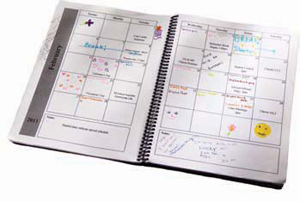 Change Offers Greater Curricular Depth and Breadth for Students
Change Offers Greater Curricular Depth and Breadth for Students
Beginning this September, the academic year will be structured differently at The Williston Northampton School’s Upper School, and the change will allow for both greater depth and greater breadth in the curriculum, among other advantages. The academic year will now follow a trimester schedule rather than a semester schedule.
Associate Head of School Jeff Ketcham explains, “Moving to a trimester schedule will allow students to delve into subjects more deeply and will provide additional opportunities to take a broader range of electives. I’m excited about the positive changes this will bring for the student experience as well as the flexibility that it will offer our overall curriculum.”
The Upper School semester schedule evolved over the past three decades. The last significant calendar change eliminated what was once a January session not connected to either semester. The result was a spring semester that was approximately five weeks longer than the fall semester, leading to an inconsistency in the amount of content covered in each semester. This imbalance resulted in a number of academic issues over time. The move to trimesters will restore balance to the school’s academic terms.
This change will have an impact on the curriculum, as well. If a student is interested in history, for example, he or she will be able to explore that topic more deeply by having the ability to enroll in three electives during the year rather than two. In addition, the change will allow for more depth in departmental offerings.
The newly-designed trimester schedule will allow for easier integration with Middle School students who are academically in a position to be enrolled in Upper School classes. The Middle School has already been on a trimester schedule; as a result, this change will align all Williston students on a single academic calendar.
Added Mr. Ketcham, “We are confident that the result of this change will be a positive one for students and faculty as they endeavor to pursue and share their academic passions.”

